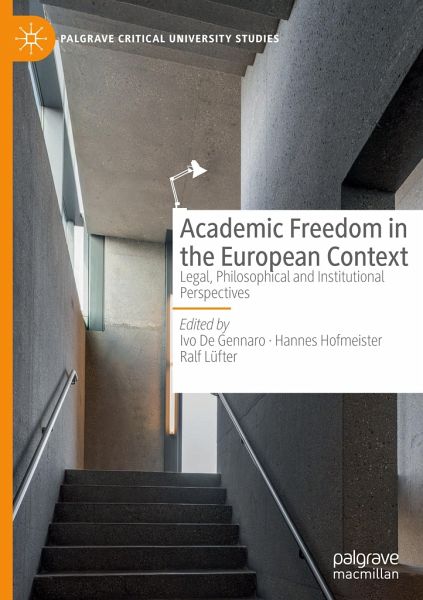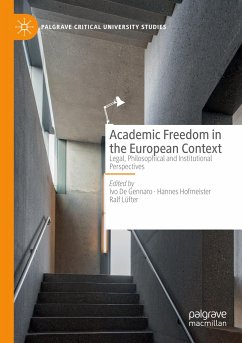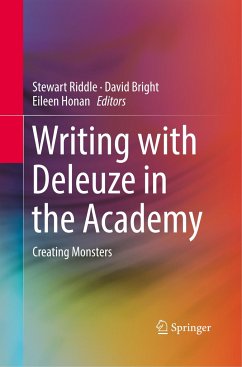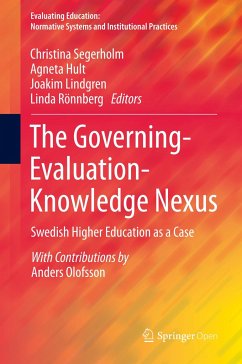
Academic Freedom in the European Context
Legal, Philosophical and Institutional Perspectives
Herausgegeben: De Gennaro, Ivo; Hofmeister, Hannes; Lüfter, Ralf

PAYBACK Punkte
57 °P sammeln!
This book explores the concept of academic freedom from a European vantage point. Drawing on both philosophical and legal perspectives, the editors and contributors analyse the concept of academic freedom within the present institutional setting. Academic freedom has long been considered a natural part of higher education, but as the world enters the digital age, a renewed understanding of its role and the threats it must face is required. The authors question the purpose of science without freedom, and subsequently the purpose of political communities without free science. Although the book u...
This book explores the concept of academic freedom from a European vantage point. Drawing on both philosophical and legal perspectives, the editors and contributors analyse the concept of academic freedom within the present institutional setting. Academic freedom has long been considered a natural part of higher education, but as the world enters the digital age, a renewed understanding of its role and the threats it must face is required. The authors question the purpose of science without freedom, and subsequently the purpose of political communities without free science. Although the book uses European case studies to answer these questions, it undoubtedly has global relevance: what would be left of the present notion of the 'global world' were we to conceive of its character without modern science? This book calls for a critical re-examination of the academic community and its own understanding of the sources, conditions and aims of scientific practice.














